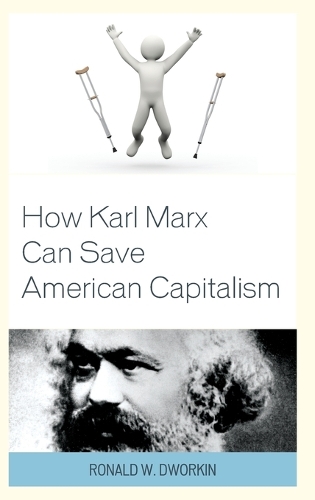
How Karl Marx Can Save American Capitalism
(Hardback)
Available Formats
Publishing Details
How Karl Marx Can Save American Capitalism
By (Author) Ronald W. Dworkin
Bloomsbury Publishing PLC
Lexington Books
14th January 2015
United States
Classifications
Tertiary Education
Non Fiction
Economic systems and structures
Far-left political ideologies and movements
330.1220973
Physical Properties
Hardback
180
Width 160mm, Height 237mm, Spine 19mm
422g
Description
When the Cold War ended, some people called it the end of history. Capitalism and liberal democracy had prevailed. Later, when the West clashed with radical Islam, Americans realized history hadnt ended after allat least not abroad. Now, in How Marx Can Save American Capitalism, Ronald W. Dworkin shows us that even the home front is in play and capitalism and liberal democracy are threatened. Dworkin uses Karl Marx to tip the balance in their favora paradox, as Marx was the sworn enemy of capitalism and liberal democracy, but also logical, as Marx knew the weak spots in capitalism and democracy better than anyone. In the past, capitalisms weak spots were obvious: sweatshops, workhouses, and hunger. The twentieth century welfare state saved capitalism by fixing them. Todays weak spots are less obvious; they dont even seem related mass loneliness, a declining birth rate, young people postponing adulthood, and workers using sleep aids to function on the job. Yet they pose the same risk to capitalism that child labor and horrid factory conditions once did. Marxs ideas applied to contemporary America show how they are all of apiece.Saving capitalism demands a third waynot rigid Republican conservatism or blind Democratic state interventionism, but a new politics in which the state focuses laser-like on advanced capitalisms unique threats to private life, while leaving much of the free market intact.
Reviews
Dworkin offers a compelling hook and an elucidating read into Marxist theory, one that is often misunderstood by the general public. . . .Dworkins strengths lie in his candid description of the political and economic landscape today, one based on an obsession with consumption, a senselessly divergent partisan system and false sense of democracy. * Journal of Politics & Society *
His [Dworkin's] book is original. * Dick and Sharon's LA Progressive *
In extensive, thoroughly documented analyses, Ronald Dworkin shows how well the young Marx understood modern alienation and isolation, its loneliness, service industries, love life, marital difficulties, and commodity fetishes. His striking parallels between Occupy Wall Street and the Tea Party, medieval and modern life, conservatives and progressives, laborers and knowledge workers, and religion and politics break down stereotypes and preconceptions and reveals Marxs surprising insights into modern consumption, regulations, religion, and politics. -- Philip Goldstein, University of Delaware
Author Bio
Ronald W. Dworkin is lecturer of political philosophy at the George Washington University Honors Program and a senior fellow at the Hudson Institute.
